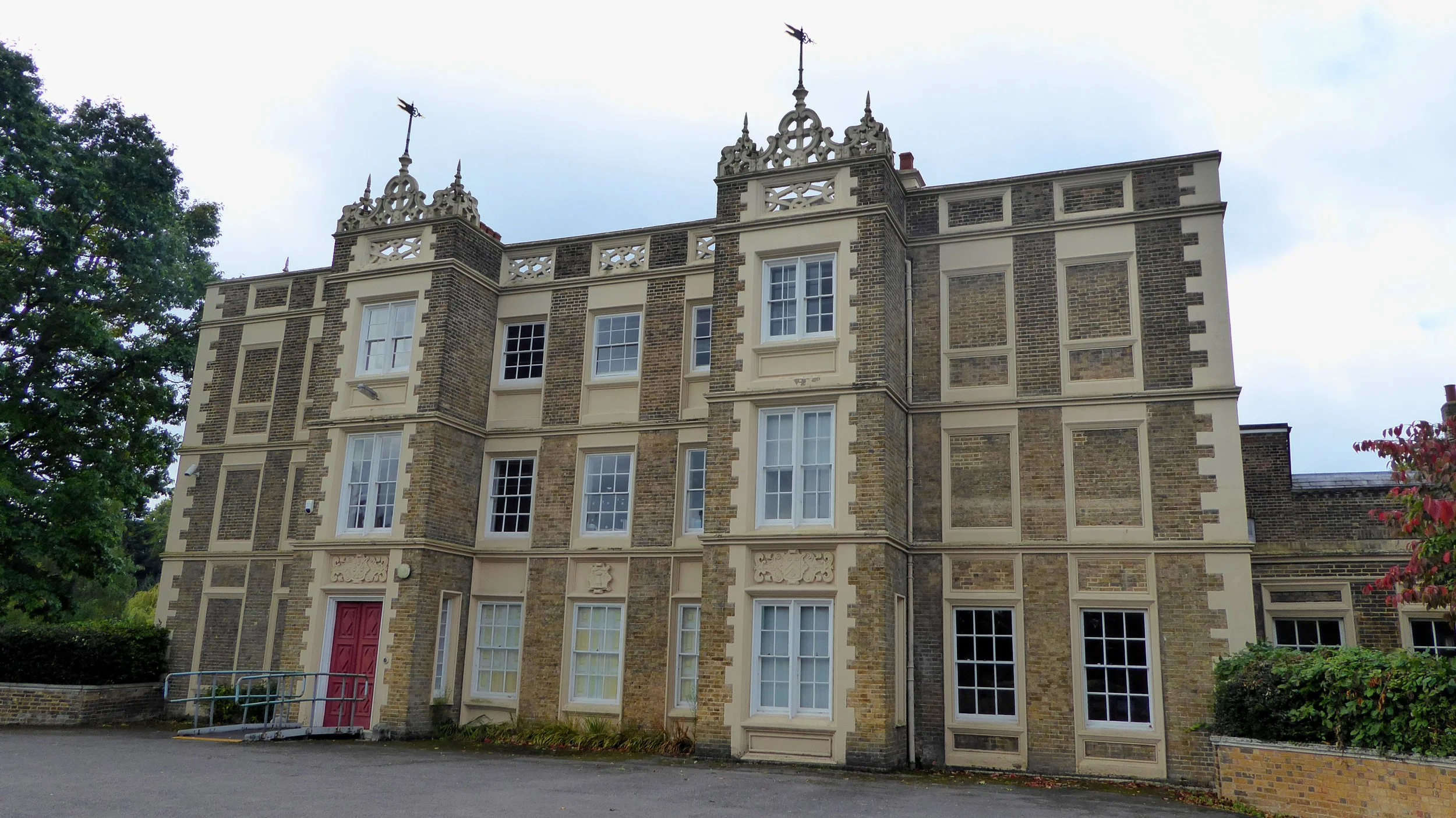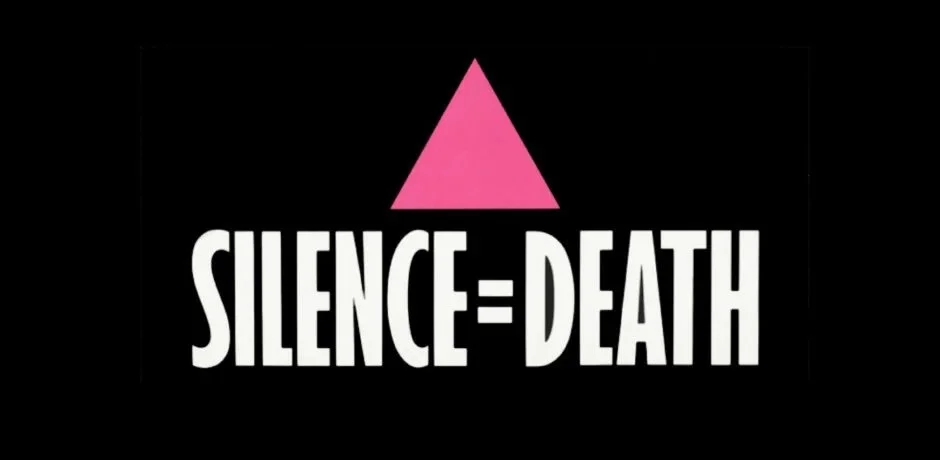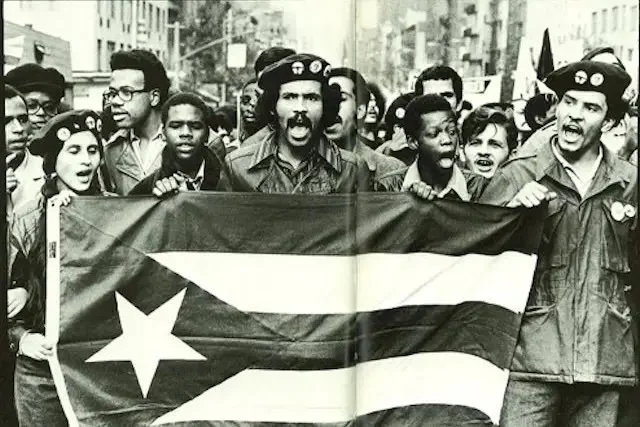
Ancestors
We honour our ancestors, both chosen and given.
We stand on the shoulders of giants. We recognise that without our chosen ancestors, those who stood up and fought against imperialism in the past, we would be nothing.
When we study those who came before, we inherit their wisdom, learn from their mistakes, and take up the past as a weapon to fight for the future.
We know that our ancestors have given us both poetry and strategy. That they have given us both organisation and art. Theory, practice, and the unity of the two.
Below are some of the organisations and principals we look to to guide us in our struggle:
The Black Panther Party
Founded in 1966 by Bobby Seale and Huey P. Newton, the Black Panther Party was the most profound challenge to American imperialism to ever exist. Over the course of the 1960s and 70s, they ran free breakfast programmes for children, free clinics to treat sickle cell anemia, monitored and opposed police violence, and forged international connections with anti-imperialist groups around the world. Prominent people connected to the Panthers included Assata Shakur, Afeni Shakur, Angela Davis, Kwame Ture, George Jackson, Ericka Huggins and Elaine Brown.
Among the Panthers, we particularly look to Fred Hampton, Chairman of the Illinois chapter of the Panthers, and Emory Douglas, the Minister of Culture. Hampton’s speeches explaining how the Panthers approached organising their communities are invaluable for anyone trying to start organising, and Douglas’s approach to making art which spoke directly to the people is essential for any artist who wants to fight for revolutionary change.
As Fred Hampton would say - All power to the people!
Dec. 11, 1969, file photo, demonstrators protest on the steps of the Los Angeles City Hall, against raids by police at Black Panther headquarters
(credit: Wally Fong)
Resources on Fred Hampton:
Power Anywhere Where There’s People! - Speech
You Can Murder a Liberator, but You Can’t Murder Liberation - Speech
Resources on Emory Douglas:
ACT UP
ACT UP is an organisation founded in 1987 to combat the AIDS crisis. At the beginning of each meeting, they read the following statement:
“The AIDS Coalition to Unleash Power is a diverse, non-partisan group of individuals, united in anger and committed to direct action to end the AIDS crisis”.
We drew on ACT UP when founding Built On Blood because of their approach to building coalitions and working groups across wide swathes of people of different political tendencies, but all united by a shared task. We also drew extensively on ACT UP’s stated strategy - To consider a problem, create a clear and detailed plan for a solution, present that solution to those with the power to implement it, and, if that solution was rejected, to engage in non-violent direct action to force the institutions they targetted to act.
We may see parallels between ACT UP’s organisation as a form of self-defence from the queer community facing mass death from AIDS, and the Black Panthers initial founding as the Black Panther Party for Self-Defence, organising against the mass death of Black people at the hands of the police. While they were organised on different lines and approaches, they both represented a militant expression of self-defence by the oppressed against the state. This is something Built On Blood draws on in our thinking about solidarity and struggle in South London today.
Resources on ACT UP:
ACT UP members burn an American flag outside the White House on Oct. 11, 1992.
ACT UP activists stage a die-in on the lawn in front of the Capitol building in Washington, DC, on May 12, 1992.
Abolitionism
Abolitionism is a movement to abolish carceral institutions like prisons and police. It takes its name from the movement to abolish slavery, another horrifically violent institution which was considered normal in its day. Abolitionism is the most radical edge of the movement to defund the police and combat violent state racism, as expressed during the 2020 Black Lives Matter uprising. Abolitionism is inherently tied to wider social transformation - To build a world without police or prisons, we must imagine a world where we do not need police or prisons, because of investment into our communities and structures which help us care for one another and be accountable to each other. As BLMUK says ‘This vision can only be achieved if we can create the alternative structures of harm reduction and care that make people less likely to come into contact with the police and prison system.’
Key texts in abolitionism include Angela Davis’s ‘Are Prisons Obsolete?’ and Ruth Wilson Gilmore’s ‘Golden Gulag’, and examples of abolitionist organisations include BLMUK and No More Exclusions.
Solidarity
Our work as organisers relies on building solidarity. Built On Blood is founded on the solidarity we show for one another, showing up to support each other’s struggles, and the solidarity we show for those fighting for justice around the world. We see solidarity as love applied as a force to change the world - Binding people together in shared resistance. Examples of international solidarity include the recent wave of student encampments pushing for the end of Apartheid and colonialism in occupied Palestine. We looked at this text ‘First We Take Columbia’ when planning our own Teach-Out For A Free Palestine.
First We Take Columbia:
Decolonisation
Decolonisation is a process by which the colonial domination of the Global North over the Global South is interrupted and uprooted. Our understanding of decolonisation is informed by the writings of Franz Fanon, Walter Rodney, Amilcar Cabral, and many other leaders and thinkers who fought to overturn colonialism over the last century. We look to modern publications like the Tricontinental Weekly Newsletter and thinkers like Vijay Prashad, alongside indigenous resistance like The Red Nation and the #NoDAPL movement. We also see anti-Zionism and support for the Palestinian resistance as being part of the global movement for decolonisation.
Texts on Decolonisation include The Wretched Of The Earth by Franz Fanon and Discourse on Colonialism by Aimé Césaire. There are also many excellent audio and video resources delving into the history and theory of Amilcar Cabral and the PAIGC, and Walter Rodney and his struggle in Guyana, from podcasts such as Millennials Are Killing Capitalism and Groundings.
Stand With Standing Rock Nov 11-15 2016
Student Occupations at Columbia, 1968 and 2024
Manifestos
While in the process of writing our manifesto, we looked at these examples of historical movements who articulated their visions for a more just society through demands.
The Black Panther Party Ten-Point Program
The Young Lords, 1960s demonstration
Rest-As-Resistance and Pleasure Activism
In the face of capitalism, a force which exploits the labour of all of us, but of racialised workers most of all, we know the necessity of rest. Rest-as-resistance and pleasure activism are two tools to help us take care of ourselves as we struggle against the forces of imperialism and exploitation. We see these movements as expressions of accessibility, as ways of building up our capacity for the long fight. We know movements work not in weeks, but in decades, and we will never survive such lengthy periods of struggle without periods of rest and recovery.
Resources on rest-as-resistance and pleasure activism include The Nap Ministry, Pleasure Activism by adrienne maree brown, the Bare Minimum Collective, and Black Power Naps.
The Nap Ministry’s site-specific installation A Resting Place for Flux Projects at the Ponce City Market in Atlanta, 2019.

Rose Bruford
Context
Content Warnings: Discussion of slavery, colonialism, and misogyny.








